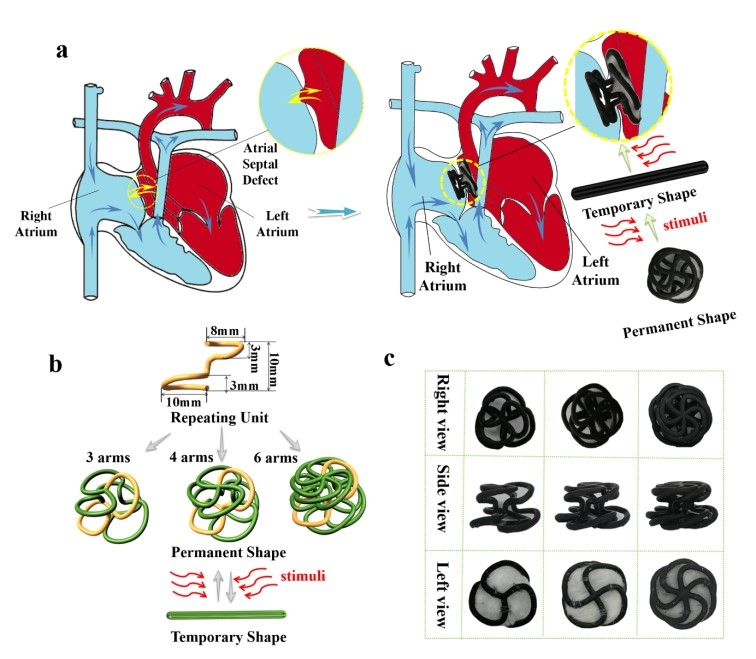Cheng Lin, Jinxin Lv, Yuanshi Li, Fenghua Zhang, Jinrong Li, Yanju Liu, Liwu Liu, Jinsong Leng
Advanced Functional Materials, 2019, 1906569.
DOI: 10.1002/adfm.201906569.
Implantation of occlusion devices is an effective approach for the treatment of congenital heart diseases (CHDs) in the clinic. However, most commercial clinical occlusion devices are currently made of nondegradable metals, which may lead to complications like perforation, allergies and erosion. This work demonstrates novel 4D-printed biodegradable, remotely controllable and personalized shape memory occlusion devices. By incorporating magnetic nanoparticles into the shape memory poly (lactic acid) matrix, the deployment of the occluders can be controlled remotely after implantation. These occlusion devices successfully address some of the key drawbacks marring nondegradable metal occlusion devices. First, the occluder can promote cell adhesion, proliferation and tissue growth, facilitating the rapid endothelialization. Second, the occluder is biodegradable, avoiding the potential danger of metal occluder remaining in the body forever. It is expected that the 4D-printed shape memory occluders can be used as a potential substitute for metal occlusion devices.
